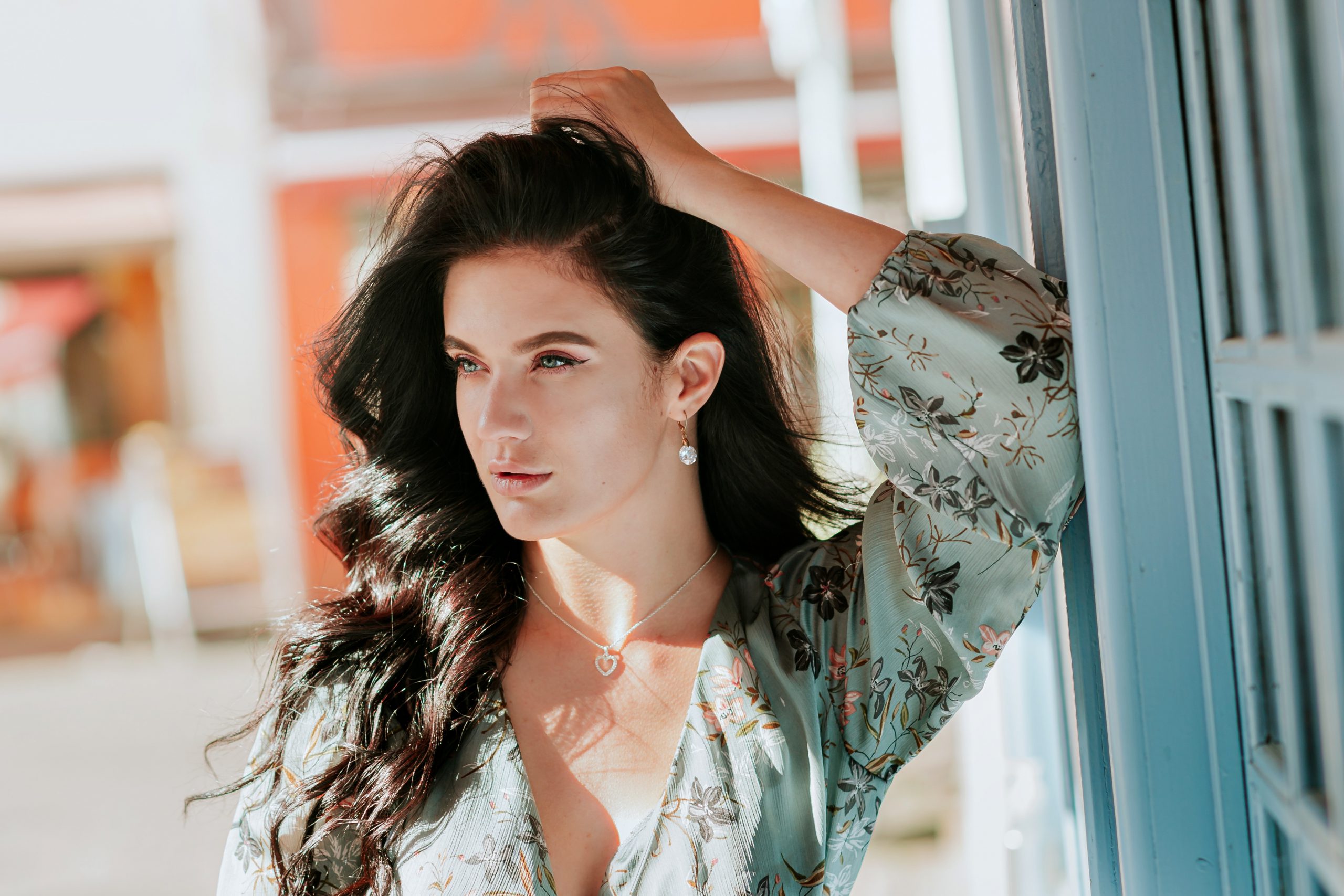
It was finally time. The 96th Academy Awards ceremony was ready for its big moment: Best Picture. But when presenter Al Pacino appeared on the stage with the envelope, somehow skipped over reading the names of the 10 Best Picture nominees along with their producers (as the presenters of the top category are expected to do) and murmured “My eyes see….Oppenheimer,” the celebratory reaction felt delayed by a few seconds for those of us present at 3400-seat Dolby Theater. For such a Kenergy-filled night capping an awards season that gave us a Best Picture line-up for the ages, the ending seemed unfairly anticlimactic. (That’s how you invite “Oppenheimer” to claim its 7th Oscar?) At my section of the orchestra, people almost had to take a silent second to confirm that Nolan’s movie actually won. (Producer Emma Thomas saved the moment with a terrific acceptance speech.)
From my vantage point in the third mezzanine seat, the fizzled ending was the bookend to a clumsy-ish start, with host Jimmy Kimmel delivering a mix-bag opening monologue. While the reliable host won some laughs and celebrated the sometimes embarrassingly earnest, self-referential spirit of the Oscars, his early gags—like the uncomfortable mention of Robert Downey Jr.’s past struggle with substance abuse—drew a combination of disbelief and polite grins at best. “This is the highest point of Robert Downey Jr’s career. Well, one of the highest points,” Kimmel said. In that moment, I couldn’t help but think of Aidy Bryant’s brilliant Spirit Awards opening monologue from just a couple of weeks ago when the host poked fun at the tradition of “roasting celebrities” in awards ceremonies, continuing with a purposely unclever “Hi Natalie Portman, you stupid bitch!” Kimmel’s joke felt like the same type of approach that Bryant had targeted. But to give him credit, Kimmel scored big by dedicating a good chunk of his time to last year’s two Hollywood strikes and celebrating the workers and crew members that make the movies run on. The Dolby rose to its feet at the gesture.

What filled the bookends was glorious, for the most part. After I watched a small part of the show from my mezzanine seat through the first commercial break, I proceeded down to the orchestra level thanks to my wristband that gave me access to the entire Dolby and lingered by the lobby-area where the likes of “The Color Purple” nominee Danielle Brooks, “The Holdovers” winner Da’Vine Joy Randolph, famous Oscars chef Wolfgang Puck and presenter Jennifer Lawrence passed through and stopped by. That’s where I witnessed the Best Animated Feature win of Hayao Miyazaki’s “The Boy and the Heron” on a giant screen, a triumph that could be called surprising by most. (I stuck with my Miyazaki prediction, while many went with “Spider-Man: Across the Spirder-Verse.”) Master Miyazaki wasn’t present at the ceremony. But Studio Ghibli COO (and movie’s Executive Producer) Kiyofumi Nakajima jokingly told me on the red carpet that the master does pay attention to his film’s Oscars journey, but perhaps quietly.
“Since he is of a certain age now, he is trying to be very humble and he’s pretending that he doesn’t really care,” he said with a chuckle. Taking pride in Japan’s longstanding tradition of 2D hand-drawn animation, “It’s a treasure in Japan,” Nakajima continued. “It’s the one that we are most comfortable doing and we are very good at it. And I think 3D animation is America’s major talent. So I think it’s interesting that we are able to represent our 2D animation.” As the film’s distributor, GKIDS president David Jesteadt told me, “We feel there’s a little something different about this year. Having Miyazaki’s film is certainly a huge honor after starting—what was that—14 years ago with “The Secret Life of Cows.” That was our first nomination. It’s been gratifying to have these nominations reinforce the idea that the animation world is continuing to change and there is a big community that opened up around it. So it’s been really fantastic. And [Miyazaki] is saying that they are watching the ceremony in Japan.”
For the rest of the show (with 2+ hours still to go), I luckily scored an empty orchestra-level seat next to the fresh Oscar winners of the animated short, “War Is Over! Inspired By The Music of John & Yoko” to my right. Sean Lennon told me, “We started the film production three years ago. The war in Ukraine had yet to break out, and so it actually happened during our pre-production. It felt chilling in a way because we’d already been planning to do a tribute to my mom and dad and their message of peace and love. And then suddenly it became very real, relevant and contemporaneous. So it’s sort of a bittersweet feeling ’cause it’s given gravitas to our film. And the film obviously resonates for the modern era now. But it’s also very sad that the message of peace and love is still necessary and relevant. The idea of “War is over if you want it” is not just about a specific war, a specific time. It’s also about overcoming violence in our minds.”

And, okay, I buried the lede. To my left was Ryan Gosling’s supportive and endearingly enthusiastic mother, Donna Gosling. “Oh he looks so good,” Ms. Gosling said when her son and Emily Blunt took the stage and launched into a playful Barbenheimer tête-à-tête. Naming “Lars and the Real Girl” as one of her favorite films of Gosling, “My son has always been about doing good work and working with good people. Look at the way he honored stunt workers now,” she remarked when I asked her whether she ever imagined Ryan as a bona-fide movie star during his successful indie beginnings. “I am not even sure if Ryan saw himself here. He was always step-by-step, about the work and not about destination. If you make decisions based on the destination, you miss the journey.”
Later, it felt like a true honor being the only person in the entire Dolby who experienced Gosling’s infectious “I’m Just Ken” performance live next to his mom. (Well, other than Gosling’s stepdad Valerio Attanasio seated on the other side of Ms. Gosling.) Like everyone else, we rose to our feet, sang along and danced to the show’s most exuberant moment—perhaps one of the finest live performances Oscars have ever produced. “That was terrific,” I told her at the end. “I am so proud of him,” she said.
In that same seat, I got served my tequila shot promised by Guillermo Rodriguez, and giggled at the nude John Cena bit and John Mulaney’s brilliant “Field of Dreams” description. From my vantage point, the somber “In Memoriam” segment felt beautiful and respectful, even though the dancers apparently made for a distracting sidebar in the telecast. Meanwhile “The Zone of Interest” deservingly winning sound over some of the bigger budget/high-tech entries like “Oppenheimer” and “Mission: Impossible—Dead Reckoning Part One” collected the night’s biggest gasp. That win, which was met by a standing ovation (a rare feat for a Sound category), was bested only by Glazer himself, the only winner in the room to deliver a statement that acknowledged what’s happening in Gaza right now, sentiments also voiced by the Pro-Palestine protests I drove through on my way to the show. “Our film shows where dehumanization leads at its worst,” Glazer, who is Jewish, said. “It shaped all of our past and present. Right now, we stand here as men who refute their Jewishness and the Holocaust being hijacked by an occupation, which has led to conflict for so many people. Whether the victims of October the 7th in Israel or the ongoing attack in Gaza, all the victims of this dehumanization, how do we resist?”
Later, Emma Stone’s win shook up the Dolby at a night when Lily Gladstone in “Killers of the Flower Moon” was largely expected to win. Charming as ever, a visibly shocked Stone gracefully accepted her award, and not without a mention of her former “La La Land” co-star Gosling. “Oh boy, my dress is broken. I think it happened during ‘I’m Just Ken,’ I’m pretty sure.”
Unlike last year, I didn’t have access to the Governors Ball this time. But I did notice of who was the very first in line to take the escalator up to the festivities: Steven Spielberg, responsibly masked, ready to party. His eagerness was in fact a good recap of a night marked not only by fresh faces and young winners, but the old-school Hollywood—names like Pacino, Nicolas Cage, Danny DeVito, Arnold Schwarzenegger, Rita Moreno, Martin Scorsese, Sally Field and more—that showed up and made the Oscars what we want them to be: a night where cinema’s past and future march arm in arm. Perhaps that future looks a little bleak right now, but the enthusiastic response to Cord Jefferson when he called for a greater number of mid-budget fare in his “American Fiction” Best Adapted Screenplay acceptance speech signaled a little hope. Perhaps one day, studios will re-learn and remember that instead of one $200-million film, there could be ten successful $20-million films for a healthier industry with longevity.
My night ended at the NEON soiree where the “Anatomy of a Fall” Best Original Screenplay winner Justine Triet danced the night away with her actors Swann Arlaud and Milo Machado-Graner, and shared a hug with double-nominee Sandra Hüller, who made an appearance late. Dragging myself to my condo late at night, I felt like a winner for having the good sense to stuff a pair of foldable ballerina flats into my little evening purse. Let’s just say that I learned my lesson the hard way last year.





